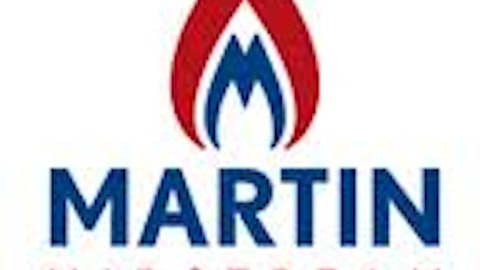Dividends from healthy, growing companies deliver to us, like mail carriers, in any kind of weather – boom, bust, or stalled economy. As 2012 drew to a close, I offered some high-yield dividend payers for you to consider. There are a lot of other promising income-generating stocks out there, though, and the year is still young, so if you’ve been meaning to add some dividends to your portfolio, read on for additional ideas.
Below are a few companies about which you might want to learn more. Note that several are limited partnerships (MLPs), which offer some tax advantages as well as some complications. Note, too, that very high yields are sometimes tied to riskier stocks that have fallen in value. Be sure to research such companies carefully before jumping in.

BP Prudhoe Bay Royalty Trust (NYSE:BPT) is yielding nearly 12%, and is down about 26% over the past year, leaving some wondering whether it’s a bargain now. Over the past 20 years, it averaged annual gains of 23%, though recent years have been less generous. Like other Royalty Trusts, BP Prudhoe is tied to the fortunes of a particular oil field asset, in Alaska’s North Slope. (Royalty trusts also generally expire after a set period, so don’t expect dividends to continue for many decades here, as they might with many blue-chip stocks. Its reserves are currently expected to last some 12 years, and the dividends are expected to peter out around 2027. The company will benefit from increases in the price of oil and boosted production levels.
Main Street Capital Corporation (NYSE:MAIN) , recently yielding 5.6%, is a business development company (BDC) — essentially a publicly traded private equity company. Like real estate investment trusts (REITs), BDCs are required to pay out at least 90% of their earnings as dividends. That can be great, offering shareholders significant income, but as dividends are so strongly tied to earnings, payouts may be rather volatile. This BDC favors investing in “traditional or basic businesses,” and late-stages ones, at that, preferring to avoid start-ups, which can be riskier. In 2012, the company issued new shares to retire some debt and generate capital for further investments. Some think it’s not the best at what it does, but others are impressed with its performance lately.
Triangle Capital Corporation (NYSE:TCAP) , yielding 7.7%, is another BDC, typically investing between $5 million and $25 million at a time in companies with annual revenue between $20 million and $200 million. In its last quarter, it had some $300 million in available liquidity, and the weighted average yield on its outstanding, currently yielding, debt investments was about 14.7%. It has averaged 30% annual stock gains over the past five years, and was recommended last month by TV’s Jim Cramer.
Vanguard Natural Resources, LLC (NYSE:VNR) , recently yielding 8.7%, buys and develops oil and natural gas properties in the U.S. It’s an MLP, and bulls like its shareholder-friendliness, smart acquisitions, and hedging strategy. Insiders like its prospects, too, as several have bought shares in the past few months. Vanguard recently spent $329 million on natural gas and liquids properties from Bill Barrett Corp., expecting them to be immediately accretive to cash flow. Over the past five years, the stock has averaged 24% annual growth.
The article 5 More Promising High-Yield Dividends for 2013 originally appeared on Fool.com and is written by Selena Maranjian.
Longtime Fool contributor Selena Maranjian, whom you can follow on Twitter,has no position in any stocks mentioned. The Motley Fool has no position in any of the stocks mentioned.
Copyright © 1995 – 2013 The Motley Fool, LLC. All rights reserved. The Motley Fool has a disclosure policy.


